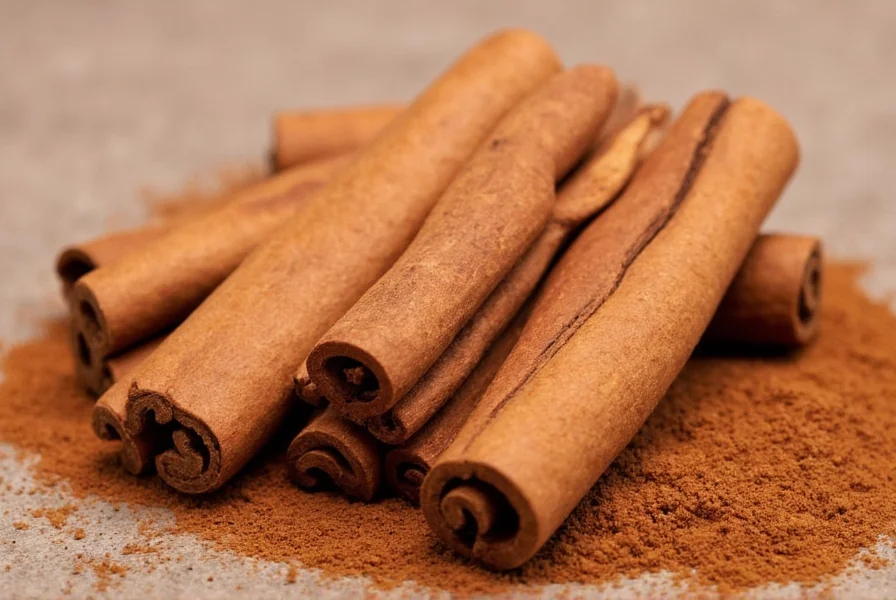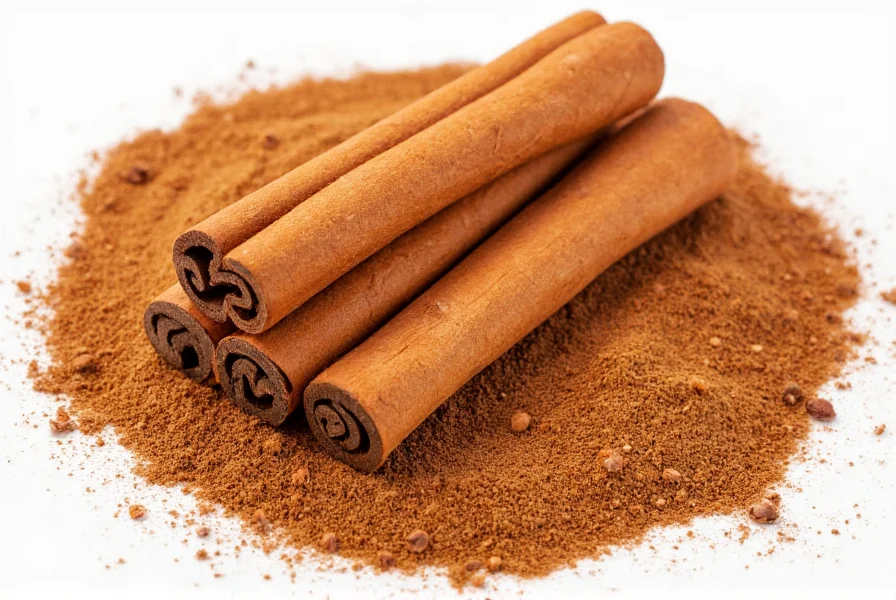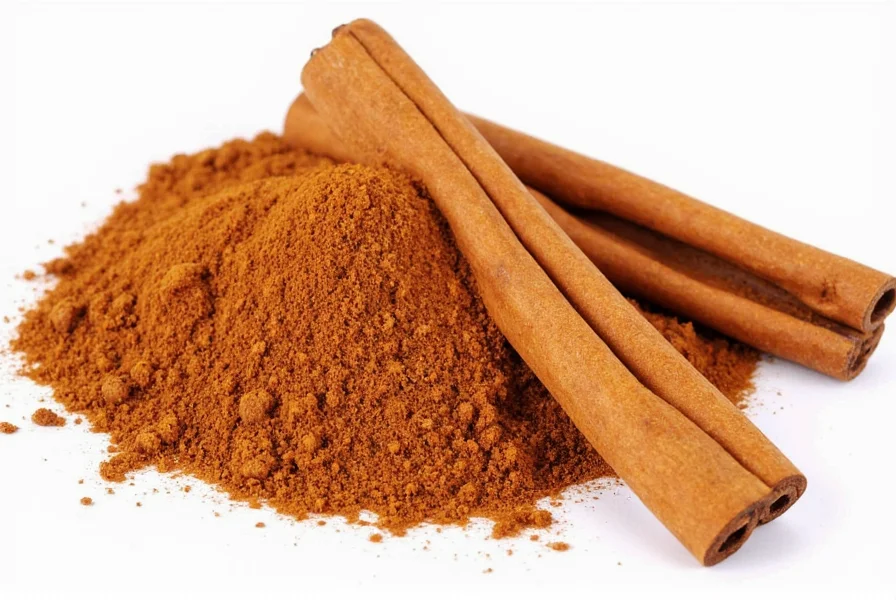Ceylon cinnamon, often called "true cinnamon," offers distinctive health advantages over the more common Cassia variety. This delicate, multi-layered bark from Cinnamomum verum trees contains powerful bioactive compounds with scientifically supported benefits. Unlike Cassia cinnamon, Ceylon contains minimal coumarin—a compound that can cause liver damage in high doses—making it the preferred choice for daily use.
Understanding Ceylon Cinnamon's Unique Properties
Native to Sri Lanka, Ceylon cinnamon (Cinnamomum verum) features a complex chemical profile rich in cinnamaldehyde, eugenol, and polyphenols. These compounds work synergistically to deliver health benefits while maintaining exceptional safety. The distinctive quill-like structure of Ceylon cinnamon—composed of multiple thin, fragile layers—contrasts with the single, thick, hard roll of Cassia cinnamon.
Scientifically Supported Health Benefits
Blood Sugar Regulation
Multiple clinical studies demonstrate Ceylon cinnamon's effectiveness in improving insulin sensitivity and glucose metabolism. Research published in the Journal of the Academy of Nutrition and Dietetics found that just 1-3 grams daily significantly reduced fasting blood glucose levels in people with type 2 diabetes. The mechanism involves enhancing insulin receptor function and slowing gastric emptying, which prevents blood sugar spikes after meals.

Superior Antioxidant Protection
Ceylon cinnamon ranks among the most potent natural antioxidant sources. Its ORAC (Oxygen Radical Absorbance Capacity) value exceeds 250,000 μmol TE/100g, placing it significantly higher than many fruits and vegetables. These antioxidants neutralize free radicals that contribute to chronic disease development and accelerate aging. The primary antioxidants—proanthocyanidins and catechins—also support vascular health by protecting endothelial function.
Natural Anti-Inflammatory Effects
Chronic inflammation underlies many modern diseases. Ceylon cinnamon contains cinnamaldehyde and linalool, compounds that inhibit key inflammatory pathways including NF-kB and COX-2 enzymes. A 2020 study in Nutrients showed that regular consumption reduced C-reactive protein (CRP) and interleukin-6 (IL-6) levels—key markers of systemic inflammation—by 15-20% in participants with metabolic syndrome.
Cardiovascular Support
Heart health benefits include improved lipid profiles and blood pressure regulation. Clinical trials indicate that daily consumption of 1.5-3 grams of Ceylon cinnamon can reduce LDL cholesterol by 10-15% and triglycerides by 20-30% while maintaining or increasing HDL levels. The vasodilatory effects of cinnamaldehyde also contribute to modest reductions in systolic and diastolic blood pressure.
Neuroprotective Potential
Emerging research suggests Ceylon cinnamon may protect against neurodegenerative conditions. Compounds in the spice inhibit tau protein aggregation and reduce oxidative stress in brain tissue. Animal studies show improved cognitive function and memory retention with regular consumption, though human trials are still limited. The anti-inflammatory effects also support overall brain health by reducing neuroinflammation.
Natural Antimicrobial Properties
Ceylon cinnamon demonstrates broad-spectrum antimicrobial activity against bacteria including E. coli and S. aureus, fungi like Candida albicans, and certain viruses. The essential oil components disrupt microbial cell membranes and inhibit biofilm formation. This makes it valuable for oral health and food preservation, though therapeutic applications require further clinical validation.
| Characteristic | Ceylon Cinnamon | Cassia Cinnamon |
|---|---|---|
| Scientific Name | Cinnamomum verum | Cinnamomum cassia |
| Coumarin Content | 0.017g/kg (very low) | 2.1-6.6g/kg (high) |
| Flavor Profile | Sweet, delicate, citrus notes | Strong, spicy, harsh |
| Bark Structure | Multiple thin layers | Single thick layer |
| Recommended Daily Limit | Up to 6 grams | Less than 1 gram |
Safety Considerations and Proper Usage
Ceylon cinnamon's low coumarin content makes it significantly safer for regular consumption than Cassia. The European Food Safety Authority recommends limiting coumarin intake to 0.1 mg per kg of body weight daily. For a 70 kg adult, this equals approximately 7 mg of coumarin—equivalent to about 4 grams of Cassia cinnamon but over 400 grams of Ceylon. Most health benefits appear with 1-3 grams daily (½ to 1½ teaspoons).
While generally safe, some individuals may experience mild mouth irritation or allergic reactions. Those taking blood sugar medications should monitor levels closely as cinnamon may enhance medication effects. Pregnant women should consult healthcare providers before using therapeutic doses.
Practical Incorporation into Daily Routine
Maximize benefits by adding Ceylon cinnamon to your diet:
- Mix ½ teaspoon into morning coffee, tea, or smoothies
- Sprinkle on oatmeal, yogurt, or fruit salads
- Add to savory dishes like curries and stews
- Create a golden milk latte with turmeric and black pepper
- Use in baking as a partial sugar substitute
For therapeutic effects, consistency matters more than large doses. Pairing cinnamon with healthy fats (like coconut oil or nuts) enhances absorption of its fat-soluble compounds. Always choose genuine Ceylon cinnamon labeled as Cinnamomum verum or "true cinnamon"—many products mislabel Cassia as Ceylon.

Conclusion: The Superior Cinnamon Choice
Ceylon cinnamon delivers impressive health benefits with exceptional safety, making it the ideal choice for regular consumption. Its scientifically supported effects on blood sugar regulation, inflammation reduction, and antioxidant protection offer meaningful health advantages without the safety concerns associated with higher-coumarin varieties. By understanding proper usage and distinguishing authentic Ceylon from inferior substitutes, you can safely incorporate this ancient spice into a modern wellness routine.
Frequently Asked Questions
How much Ceylon cinnamon should I take daily for health benefits?
Research indicates that 1-3 grams (approximately ½ to 1½ teaspoons) daily provides measurable health benefits for blood sugar regulation and inflammation reduction. This amount is safe for regular consumption due to Ceylon's minimal coumarin content, unlike Cassia cinnamon which should be limited to less than 1 gram daily.
Is Ceylon cinnamon better than regular cinnamon for diabetes management?
Yes, Ceylon cinnamon is preferable for diabetes management due to both its efficacy and safety profile. Studies show both types improve insulin sensitivity, but Ceylon's extremely low coumarin content makes it safe for daily therapeutic use. Cassia's high coumarin levels pose liver risks with regular consumption at therapeutic doses, while Ceylon can be safely consumed at effective amounts.
What makes Ceylon cinnamon different from Cassia cinnamon?
Ceylon cinnamon (Cinnamomum verum) has multiple thin, delicate bark layers forming a soft quill, a sweeter, more complex flavor, and critically low coumarin content (0.017g/kg). Cassia cinnamon has a single thick, hard bark layer, stronger spicy flavor, and high coumarin levels (2.1-6.6g/kg) that can cause liver damage with regular consumption. Ceylon is safer for daily use and offers more nuanced health benefits.
Can Ceylon cinnamon help with weight loss?
While not a weight loss miracle, Ceylon cinnamon may support healthy weight management by improving insulin sensitivity and reducing blood sugar spikes that trigger fat storage. Its ability to slow gastric emptying promotes satiety, and some studies show modest reductions in abdominal fat when combined with a healthy diet. However, it should be viewed as a complementary tool rather than a primary weight loss solution.











 浙公网安备
33010002000092号
浙公网安备
33010002000092号 浙B2-20120091-4
浙B2-20120091-4